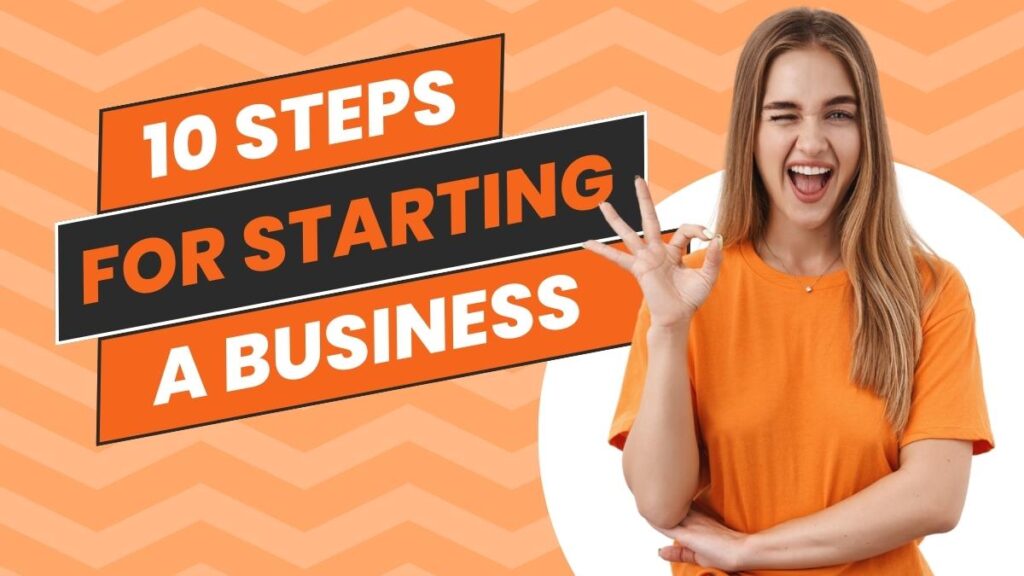Starting a business can be daunting if you don’t have a clear idea of what to do. However, by taking a structured approach and focusing on key aspects, you can come up with a profitable business idea. Here’s a step-by-step guide to help you get started and make informed decisions about your new business.
1. Know Your Interests and Strengths
The first step to finding the right business idea is understanding what you’re passionate about or good at. Do you enjoy working with people, handling technology, or creating things? Think about areas you have experience in or enjoy. It’s much easier to build a successful business when you’re working on something that excites you.
Example:
If you’re passionate about health and fitness, starting a personal training or wellness business might be a great fit.
2. Consider Your Market: Location, Audience, and Needs
Next, consider where you want to operate your business. Is it a local business or something that can be managed globally (online)? Think about the area where you live or plan to do business. Understand the local economy, the people’s income levels, and their needs.
- Income Levels: What is the average income of people in that area? If you’re in a high-income area, luxury or premium services might be a good idea. If the area has a lot of working-class individuals, affordable services may work better.
- Demographic: What type of people live in the area? Are they young professionals, families, students, or retirees? This will guide you to the type of product or service that will appeal to them.
Example:
In a college town, a business offering affordable food delivery or a study-focused café might be highly successful.
3. Evaluate Business Costs: How Much Money Do You Need?
Before you dive into any business idea, it’s important to estimate how much money you’ll need to start. Make a list of all the expenses you might incur, such as:
- Initial Setup: Rent, equipment, licenses, inventory
- Ongoing Costs: Staff salaries, utilities, marketing, materials
Also, keep in mind your personal finances. Do you have savings to cover the startup costs, or will you need to take out a loan? Do you need a side job until your business becomes profitable?
Example:
If you want to start a small café, initial costs would include rent, furniture, kitchen equipment, and staff salaries. You may also need some funds for marketing and advertising.
4. Online vs. Offline Business: Where Will You Sell?
Decide if you want to run an online or offline business.
- Online Business: You can sell products or services online (e.g., e-commerce store, freelancing, online education). Online businesses often require lower startup costs but might involve strong competition.
- Offline Business: A physical store or service-based business like a restaurant, retail shop, or repair service. Offline businesses generally require more investment in property, equipment, and staff.
Example:
If you’re good at crafting, you might sell handmade jewelry on platforms like Etsy or start an online store. If you prefer face-to-face interaction, opening a boutique or a café might be a better option.
5. Risk Level: Do You Want to Take Risks?
Every business involves some level of risk, but how much risk are you willing to take? Some businesses are higher risk, but they also have the potential for bigger rewards. Others are lower-risk but may grow slower.
- High-Risk Business: Startups with big capital requirements or new, unproven products/services. There is a chance they might fail, but the reward could be high.
- Low-Risk Business: These businesses may have lower returns, but they are generally easier to start and have a higher chance of success.
Example of High-Risk Business:
A tech startup or opening a large franchise.
Example of Low-Risk Business:
Freelancing, cleaning services, or online tutoring, which require low investment and have steady demand.
6. Consider Profitable & Low-Risk Business Ideas
If you’re not sure about taking risks, you can focus on businesses that are proven and have steady demand. These are generally low-risk and have more predictable income.
Profitable Business Ideas:
- Freelancing (writing, graphic design, programming, etc.)
- Online Stores (selling handmade or sourced products)
- Food Delivery Service
- Cleaning Services (house cleaning, office cleaning)
- Tutoring Services (online or offline)
- Personalized Gifts Business
7. Testing and Market Research: Validate Your Idea
Once you’ve chosen a business idea, it’s important to test it before investing large amounts of money. This could mean:
- Talking to Potential Customers: Understand their needs and willingness to pay.
- Conducting Surveys or Interviews: Ask people in your target market if they would buy your product or service.
- Small-Scale Pilot Test: Offer your service to a small group first or launch a limited product line to test the market.
Example:
If you want to open a new café, you might want to do a “pop-up café” or a food stall at a local event to test the demand before committing to a permanent location.
8. Scale and Grow Your Business
Once your business starts to grow and you gain more customers, you’ll want to scale it. This could mean hiring employees, expanding your product/service offerings, or investing in advertising to attract a larger audience. Scaling helps you increase revenue and take your business to the next level.
Example:
If you start an online t-shirt printing business, after a few months, you can hire more designers, introduce custom designs, and expand to other regions or countries.
Conclusion: Choose What Works Best for You
If you want to start a business but have no ideas, it’s important to take a systematic approach to identify what type of business fits your skills, financial situation, and risk tolerance. Consider whether you want an online or offline business, how much investment you’re willing to make, and how much risk you’re comfortable taking. Start small, test your idea, and gradually scale as you learn what works.
Remember: Business is a journey, and it takes time to grow. But with the right idea and strategy, you can turn your passion or interest into a successful venture.
Pro Tip: If you need help choosing a business idea or further guidance, feel free to connect via WhatsApp: https://wa.me/01610577185.

